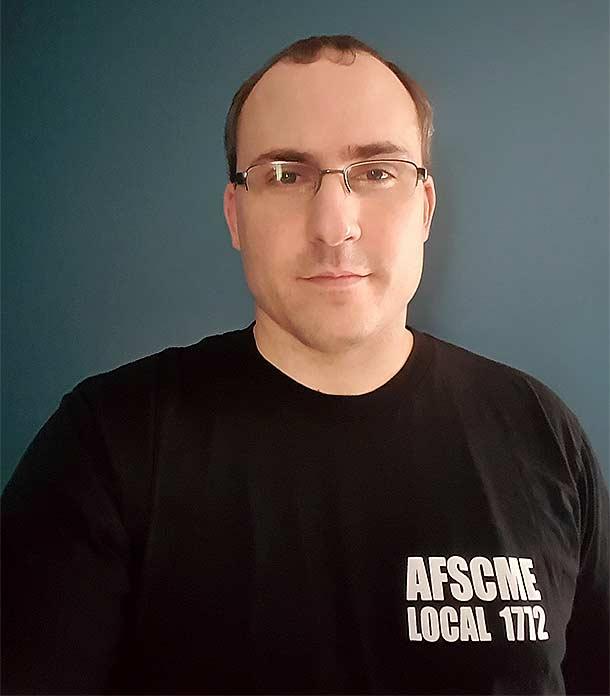
Sgt. Kyle Shanholtz is a corrections officer at the Maryland Correctional Institution in Hagerstown. The 32-year-old is also one of four vice presidents of AFSCME Local 1772, Council 3. In October, he and a group of our union’s Next Wavers came together to discuss the future of our union and how to recruit young leaders.
Shanholtz says young people who are beginning their careers are often reluctant to commit to an employer long-term, let alone to the idea that through their participation in a union they can permanently improve their workplaces, working conditions, the services they provide and the salaries and benefits they earn.
“A lot of younger workers don’t feel like they have any real influence in their jobs, their working conditions,” Shanholtz says. “They don’t feel like they can effect that change in any way. But the more active you become in your union, the more you get to see what can be done.”
Shanholtz would know. Before becoming a corrections officer and joining AFSCME, he worked for Verizon and was a member of the Communications Workers of America. What’s even more, he grew up in a union household (his dad, too, worked for Verizon and was a member of the CWA).
“I grew up seeing the changes that came through at Verizon because of the CWA and their negotiations,” he says. “When I came to the Department of Corrections I knew our union was a great way for people to change things about their jobs. Without a union we don’t have a voice to make those changes. It’s especially important in corrections to have a good understanding between management and frontline staff because safety is so important. When I first started I saw union members at each facility sit down with management and talk about site-specific issues that weren’t necessarily contractual issues. I saw how changes were made to address those issues. So, yea, if I want my voice to be heard, if I want anything to change, the only way is to do it together through our union.”
The gathering of Council 3 Next Wavers in Baltimore featured a strategic planning session and an organizing blitz. AFSCME members 18 to 40 years old came up with strategic goals for how to increase participation of workers in their age group in union activism.
Among the goals they set was to make at least 10 percent of participants at a Dec. 10 statewide rally for working families to be Next Wavers. They also want to increase the number of Council 3 members who become Next Wavers, and to create a Next Wave advisory committee that can have direct input on the Council's decisions and to help recruit new leaders.
It’s important that young workers be members of our union, Shanholtz says, not just fair share fee payers.
“It’s important for people to know that only if they are members will they have a voice in our union,” he says. “And it’s important to have a voice, and also for the governor and other decision makers to see that we have the strength in membership, that we have the numbers to effect change. It’s about showing that you’re willing to take a stand.”